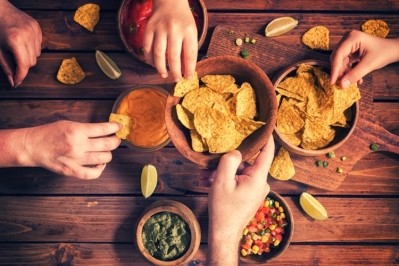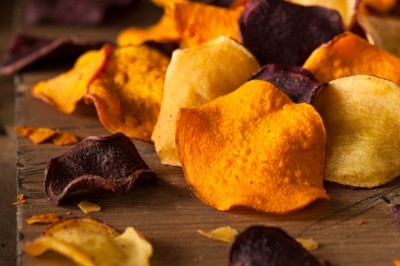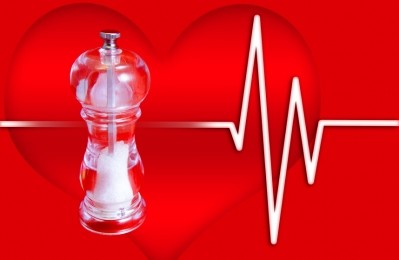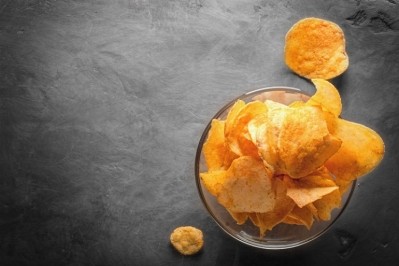Snack chat
Myth buster: Savoury snacks are low contributors of salt and saturated fats to the average daily diet, says DG of ESA

Sebastian Emig (40) is the director general of the European Snacks Association asbl, a position he has chaired since March 2012.
BAS: Tell us about your job
I am responsible for representing the interests of my members in front of the European Commission, European Parliament, the EU Member States’ representatives, NGOs, related trade associations like FoodDrinkEurope, press and other stakeholders.
With the support of members and my great team, we are always trying to stay ahead of the curve in terms of regulatory topics and communication issues.
BAS: Tell us about the association
Founded in 1961, ESA is Europe’s only trade organisation dedicated to advancing the savoury snacks industry on behalf of member snack manufacturers and suppliers, as well as national trade organisations.
It has a broad international membership of manufacturers and companies supplying equipment, ingredients and services to the industry. In addition, membership is open to other trade associations with relevant interests in the savoury snacks industry.
ESA’s membership groups some 200 companies of all sizes in 40 countries, and ESA members represent 80% of the entire European branded snacks market. Our members are involved in the manufacture of potato crisps, corn chips/tortillas, pellet snacks, baked snacks, crackers, pretzels, savoury biscuits, popcorn, pork rinds, meat snacks, fruit snacks, peanuts, other snack nuts and various other savoury snacks in this category.
BAS: What drew you to working in the snacks industry?
The savoury snacks industry is a bubbling and buzzling sector where tremendous innovative power is being welcomed by open-minded consumers. Being always interested in and fascinated by the food industry, this was the perfect opportunity for me to dive deep and wide.
BAS: What is your biggest achievement in your current position?
Our two biggest (and also recent) achievements as a team in the regulatory environment include:
- The process contaminant acrylamide – which is a challenge also for other industries like coffee, breakfast cereals or fine bakery wares – has received a regulatory framework that mirrors the voluntary mitigation measures that our members are following now for over a decade, and which is not penalising responsible companies. I still remember the moment in 2013 when the chairperson of the contaminants working group of the European Food Safety Authority called the European savoury snacks sector publicly in a meeting a “success story” in this matter.
- Another highlight was the acknowledgment of the World Customs Organisation to continue considering blanched peanuts under the category “raw” rather than “processed”. This was the result of a long process collecting technical information about production processes, organoleptic properties and plant material information, which was spearheaded by our Secretariat and involved many associated sector organisations and country representations. In the end, this has saved our and other sectors literally millions of Euros in potential increased tariff payments.
BAS: What are the biggest challenges the industry is currently facing?
Besides regulatory challenges that can pop up, one growing challenge is the perception around our products.
Time and again, few organisations try to put savoury snacks in a bad light by spreading incorrect information about how much our products contribute to the average daily diet in terms of salt and saturated fats.
Luckily, we are well prepared on the basis of sound and independent data collection and analysis to debunk those myths and such fake information.
What do you think will be the next best thing in snacking?
As the trend in consumption goes towards snackification – keep your eyes open for our next Snackex trade show and conference on Jun 27-28, 2019 in Barcelona, Spain, which will dig deeper into this topic – I see that our members are well prepared to answer this by offering the right snack for the right moment.
With the eating occasions being in a state of flux, consumers are getting more demanding in their expectations towards snacking, which is increasingly related to an occasion or an event.
- In the morning, they want to have a wake-up protein kick that fuels them through their way to work and the first working hours;
- Later during the day, when they might not be able to have enjoyed a traditional lunch, they want to have the choice of exciting and daring intermediate delightful options to nibble on;
- After work, they expect to be able to choose from a universe of snacking formats that fit seamlessly in their evening programme, be it after physical exercise, a night out with friends or cocooning at home.
Our industry is getting better and better to answer to the different needs of the different consumer segments, from the baby boomers to the Gen Zs.
BAS: If you could change one thing about the industry, what would that be?
I wouldn’t change anything within the industry as it is brimming with talented people and bright ideas; however, I would change something about the perception towards our industry, especially from decision makers and opinion leaders.
For example, the sector has done so much in developing new product and reformulating existing ones towards a healthier nutrient composition in the last decades. This and other very positive developments that have taken in the past should be more recognised and welcomed.
BAS: What do you believe is the biggest misconception about snacks?
As mentioned above, there is a huge misperception concerning the salt intake via savoury snacks in the average daily diet.
Recently, in the context of a soccer world cup tweet, WHO Europe put the focus on avoiding snacks that are high in salt. In their clip, they showed salt figures that were way off in comparison to reality.
We went back to them – via Twitter and mail – to contest the wrong information provided; we are still waiting for their reply…
BAS: What advice would you give a small snack start-up?
Be bold and learn from the big players. Try to be as innovative as possible, even if it might seem a ludicrous idea in the beginning. Imprint your business culture to everything you do, and when you grow, don’t forget where you came from. And most important of all: if you fail, try better; if you fail again, you failed better; and in the end, you either win or learn.
BAS: Where do you see yourself in five years from now?
Still at the helm of the ESA, surrounded by a great team and working even smarter to defend the interests of my members.
What keeps you busy when not focused on snacks?
My family, keeping fit with boxing and running, learning Spanish, trying new recipes in the kitchen and many other things that help filling up my batteries that I can bring more ideas and impact into my work.
Adiós, Sebastian and thanks for sharing.


















